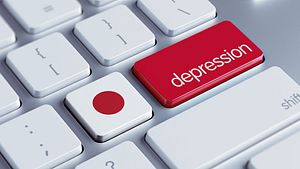A handful of data and surveys this week show that Japan’s recent economic recovery may be stalling, as the effects of April’s consumption tax increase take hold and external forces such as rising energy costs constrain growth. While the tax increase was expected to have a pronounced negative short-term effect, some economists now doubt if the virtuous circle of a tightening labor market driving up wages, and subsequently consumption, will actually happen. What is troubling in this regard is that June saw an unexpected rise in unemployment from 3.5 percent to 3.7 percent, the first rise in 10 months.
First of all, a Nikkei survey of economists found that the effects of April’s tax increase on GDP may be greater than the last tax hike in 1997, which led to a prolonged recession. The survey estimates that year-on-year growth for the second quarter shrank 7.1 percent. While the economy is expected to bounce back in the third quarter somewhat, predictions range from as low as 2.8 percent to as high as 7.9 percent on increased capital spending and large summer bonuses.
A separate survey found that energy costs are beginning to have a significant impact on Japan’s biggest companies. Compared to fiscal 2010 (the year before Japan’s nuclear reactors went offline), the cost of electricity is expected to be 22 percent higher in fiscal 2014. The increased cost of fossil fuel imports for Japan’s major utility companies has largely been passed on to companies and household consumers, with prices per kilowatt hour rising 28 percent and 19 percent respectively between fiscal 2010 and 2013.
Retail sales have also not recovered after the consumption tax increase, declining 0.6 percent year-on-year in June and 7 percent for the second quarter, according to a Bloomberg survey. However, consumer prices increased 3.6 percent in June and the Labor Ministry has recommended increasing the minimum wage by 16 yen ($0.16), which could contribute to the government’s inflation target of 2 percent.
While it is certainly too early to say that the economic recovery brought about by Prime Minister Shinzo Abe’s three pronged approach of monetary easing, increased government investment and structural reform are off track, there are reasons to question whether it can sustain itself. If both growth and consumer spending can rebound in the third quarter, perhaps that will give some of Abe’s structural reforms time to take hold, yet one of the largest reforms, on corporate tax, will not even begin until 2015. It appears that the first two “arrows” of Abenomics may not be enough to counteract declining consumer sentiment over the tax hike and rising energy costs, while the effects of the third could be too far off to sustain Japan’s nascent economic growth.

































